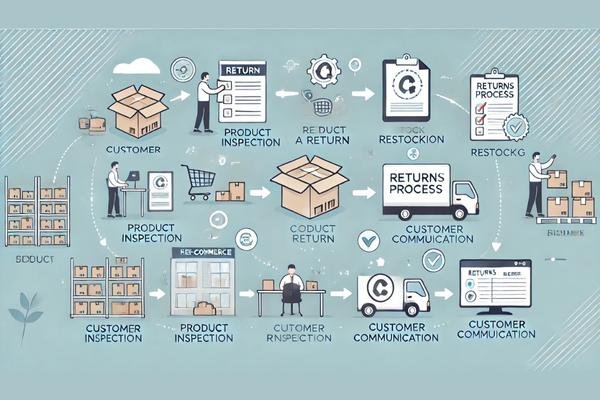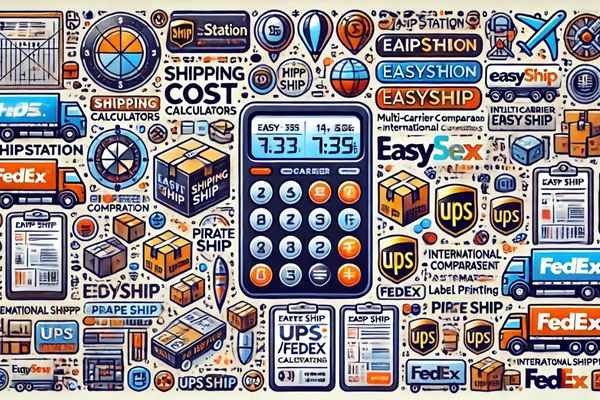
Best Online Store Platforms with Secure and Easy Payment Solutions
October 2, 2024
Best 10 Payment Gateways for 2025
October 29, 2024Best Online Store Platforms with Easy Payment Integration
For any online business, offering a smooth and reliable checkout process is critical. Studies have shown that nearly 70% of customers abandon their carts due to poor payment experiences. In 2024, selecting the right platform that provides seamless payment integration will play a vital role in retaining customers and improving conversion rates. This article is designed to help developers, marketers, and content creators make an informed decision by reviewing the top e-commerce platforms that excel in payment integrations, security, and user experience.
Let’s dive into the platforms that will streamline your payment processes while boosting your online store’s credibility and customer trust.
Table of Contents
1. Shopify: Comprehensive Payment Gateway Options
Shopify is one of the most popular e-commerce platforms globally, known for its easy-to-use interface and a wide range of payment options. With Shopify Payments (its built-in payment gateway), merchants can accept multiple currencies and methods, including credit cards, Apple Pay, and Google Pay, without the need for third-party providers.
Key Payment Integration Features:
- Shopify Payments: Fully integrated and offers seamless processing without additional setup. Avoid third-party fees, ensuring smooth transactions.
- Multiple Payment Gateways: Shopify supports over 100 external payment gateways, including PayPal, Stripe, and Authorize.Net, making it a versatile platform for global businesses.
- Automatic Fraud Detection: Shopify integrates built-in fraud analysis to identify suspicious orders and protect merchants.
- Multi-Currency Support: Ideal for international businesses, Shopify allows you to display prices in local currencies and process payments accordingly.
Pros:
- User-friendly interface suitable for all skill levels.
- No transaction fees with Shopify Payments.
- Highly customizable checkout process with third-party apps.
Cons:
- Using external gateways can result in additional transaction fees.
- Shopify Payments is not available in every country.
Best for:
Businesses of all sizes looking for a platform that offers easy integration with both native and third-party payment solutions.
2. WooCommerce: Maximum Flexibility with Payment Integrations
WooCommerce, a plugin for WordPress, gives users full control over their payment integrations. It’s an open-source solution that allows you to customize every aspect of your store, including the checkout process. WooCommerce integrates with PayPal, Stripe, and many other local and international payment gateways, making it one of the most flexible options available.
Key Payment Integration Features:
- WooCommerce Payments: Built-in and optimized for WordPress users, supporting major credit cards and multiple currencies.
- Third-Party Payment Gateway Support: WooCommerce supports popular payment methods like PayPal, Stripe, Square, and region-specific gateways.
- Subscriptions and Recurring Payments: WooCommerce supports recurring billing, ideal for subscription-based businesses.
- Customizable Checkout: WooCommerce allows developers to fully customize the checkout process, giving you control over payment flows and design.
Pros:
- Open-source platform with complete control over customization.
- Access to a vast library of payment plugins.
- No platform transaction fees (only gateway-specific fees).
Cons:
- Requires technical knowledge for setup and customization.
- Self-hosted, so users are responsible for maintenance and security.
Best for:
Businesses and developers who need flexibility in integrating different payment gateways and customizing the checkout experience.
3. BigCommerce: Built for Scalability and Seamless Payments
BigCommerce offers a range of features designed for mid-sized to large businesses that need scalability without sacrificing seamless payment experiences. Its payment integration capabilities are robust, with support for over 65 payment gateways and methods, including PayPal, Square, and Amazon Pay.
Key Payment Integration Features:
- Multiple Payment Gateways: BigCommerce supports various global gateways like PayPal, Braintree, and Authorize.Net, ensuring global compatibility.
- Secure Checkout: The platform is PCI DSS compliant, meaning all payment data is securely encrypted and managed.
- Digital Wallets: BigCommerce integrates with digital wallets like Apple Pay and Amazon Pay for quick, secure payments.
- No Transaction Fees: BigCommerce does not charge transaction fees, even when using third-party payment processors.
Pros:
- Wide range of payment methods without additional transaction fees.
- Excellent scalability for growing businesses.
- Built-in payment security and fraud protection.
Cons:
- Higher cost for advanced plans compared to other platforms.
- Limited customization options for checkout without third-party apps.
Best for:
Established businesses that need a scalable e-commerce solution with seamless payment integration across global markets.
4. Squarespace: Best for Creatives with Easy Payment Setup
Squarespace, known for its design-centric approach, is also a solid e-commerce platform with integrated payment solutions. It’s ideal for creatives, small businesses, and entrepreneurs looking for simplicity in setting up an online store with seamless payment options.
Key Payment Integration Features:
- Integrated Payment Processors: Squarespace natively integrates with Stripe and PayPal, offering simple payment processing with minimal setup.
- Apple Pay Integration: Customers can complete purchases with a single click using Apple Pay, a great feature for mobile-first businesses.
- Subscription Payments: Squarespace supports recurring payments, making it suitable for subscription services and membership sites.
- SSL Encryption: Built-in security features, such as SSL encryption, protect transactions and improve customer trust.
Pros:
- Easy to set up with limited technical knowledge required.
- Sleek, modern designs with seamless payment integration.
- Recurring payments for subscription-based models.
Cons:
- Fewer payment gateway options compared to platforms like Shopify or WooCommerce.
- Limited customization for checkout pages.
Best for:
Creatives, small businesses, and entrepreneurs who prioritize ease of use and a smooth payment experience.
5. Wix eCommerce: Ideal for Small Businesses with Simple Payment Needs
Wix eCommerce has made significant strides in becoming a competitive online store platform. It’s particularly attractive for small businesses and newcomers to the e-commerce space. Wix offers integrated payment gateways, including Wix Payments, PayPal, and Stripe, allowing for a smooth payment experience.
Key Payment Integration Features:
- Wix Payments: The platform’s own gateway, enabling merchants to accept credit card payments directly on the site.
- Multiple Payment Gateways: Support for PayPal, Stripe, and other global payment processors, providing flexibility for international transactions.
- Point-of-Sale (POS): Wix also integrates with POS systems, allowing for both online and offline payment processing.
- Secure Transactions: All Wix websites come with SSL encryption, ensuring secure payment transactions.
Pros:
- Simple to use with an intuitive drag-and-drop interface.
- Wix Payments eliminates the need for third-party gateways.
- Affordable pricing plans for small businesses.
Cons:
- Limited advanced payment features compared to platforms like Shopify or BigCommerce.
- Customization options are more restricted.
Best for:
Small businesses and beginners looking for a cost-effective, easy-to-use platform with basic payment integration features.
Best Online Store Platforms with Easy Payment Integration Comparaison
Best Online Store Platforms with Easy Payment Integration
| Platform | Key Payment Features | Best For | Link |
|---|---|---|---|
| Shopify |
– Shopify Payments for seamless transactions – Supports 100+ payment gateways (PayPal, Stripe) – Multi-currency and automatic fraud detection | Businesses of all sizes | Visit Shopify |
| WooCommerce |
– WooCommerce Payments for credit cards – Integration with PayPal, Stripe, and Square – Subscription and recurring payments | Developers and flexible integrations | Visit WooCommerce |
| BigCommerce |
– No transaction fees on third-party gateways – Supports PayPal, Amazon Pay, and Apple Pay – PCI DSS compliance for secure transactions | Mid-sized and large businesses | Visit BigCommerce |
| Squarespace |
– Stripe and PayPal integration – Supports Apple Pay for quick mobile checkouts – Recurring payments for subscriptions | Creatives and small businesses | Visit Squarespace |
| Wix eCommerce |
– Wix Payments for direct card payments – Integration with PayPal, Stripe, and POS systems – SSL encryption for secure transactions | Small businesses and beginners | Visit Wix |
Frequently Asked Questions
1. Which platform offers the best payment integration for small businesses?
For small businesses, Shopify and Wix offer excellent payment integration features. Shopify’s ease of use and the ability to integrate multiple payment gateways make it suitable for businesses of all sizes, while Wix is perfect for beginners with its simple setup.
2. How important is payment gateway security for online stores?
Payment gateway security is paramount. All platforms mentioned, such as BigCommerce, WooCommerce, and Squarespace, offer SSL encryption and PCI DSS compliance to protect customer data and ensure secure transactions.
3. Can I use multiple payment gateways on a single platform?
Yes, platforms like WooCommerce, Shopify, and BigCommerce allow merchants to use multiple payment gateways, offering flexibility for customers in different regions or with varying payment preferences.
Conclusion
Selecting an e-commerce platform with seamless payment integration is critical to your online store’s success. Each platform discussed in this article offers unique advantages tailored to different business needs. Whether you’re a small business owner looking for simplicity with Wix, a creative entrepreneur on Squarespace, or a developer needing flexibility with WooCommerce, there is a platform that fits your needs.
Ultimately, your choice of platform should depend on your business’s size, target audience, and specific payment processing requirements. By choosing the right platform with robust payment integration features, you can create a smooth and secure checkout experience, reduce cart abandonment, and improve customer satisfaction.








